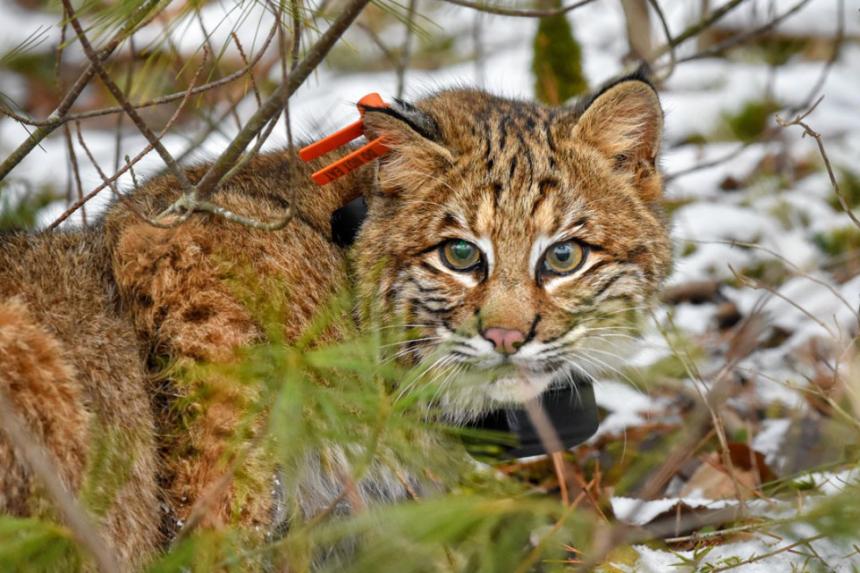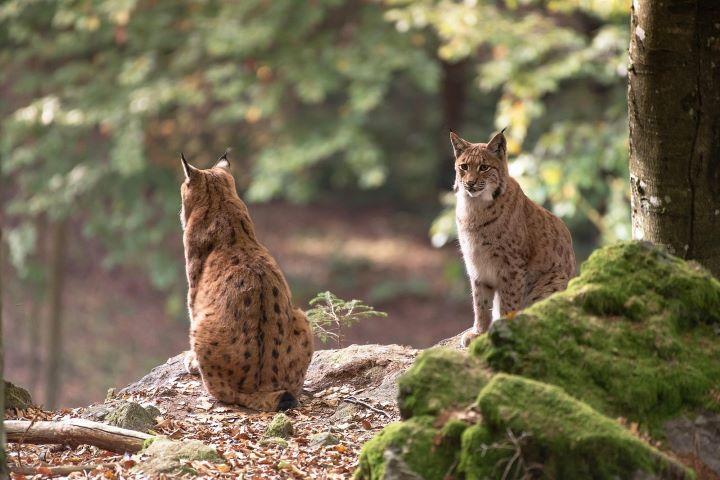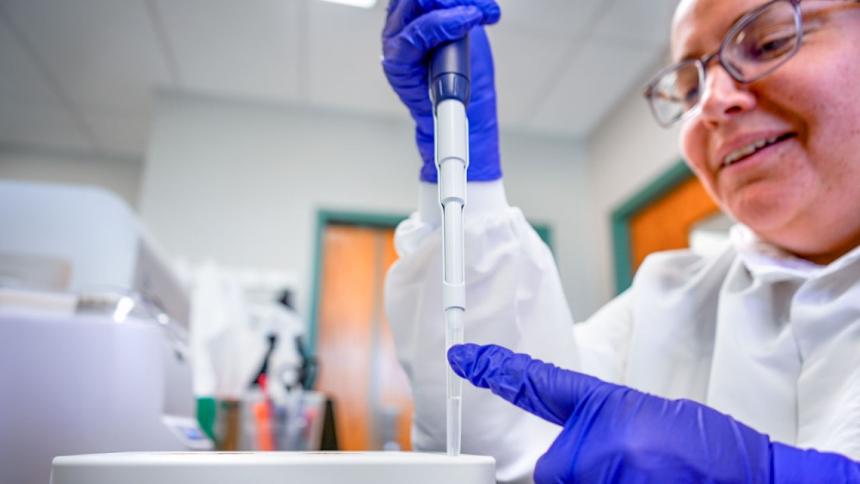In the News

April 17, 2025
Avian influenza – which has devastated poultry flocks, wildlife populations and increasingly poses a public health risk – has now been confirmed in wild bobcats in New York state, according to a new study by Cornell scientists.

For Your Information
March 26, 2025
A recent study by Cornell researchers assessed the presence of antibodies for highly pathogenic H5N1 influenza A in live-captured bobcats in New York.

For Your Information
March 25, 2025
Cornell researchers recently published a study providing the first genetic evidence of canine coronavirus infection in a felid. These findings suggest that felids may play a central role in the emergence of recombinant alphacoronavirus.

February 26, 2025
New research reveals that the stopover patterns of mallard ducks—natural carriers of avian influenza—could help predict the risk of bird flu transmission to backyard poultry.

February 21, 2025
News and guidance on avian influenza is scattered across government and state agency websites, and rampant misinformation is spread across the internet. In response, Cornell has launched a comprehensive resource that offers a one-stop clearinghouse for the most current and trustworthy information on bird flu.

February 21, 2025
At Cornell University’s Wildlife Health Lab, scientists work with New York State to test and identify cases of bird flu among animals in Central New York. Interviewed as an expert in the field, Dr. Jennifer Bloodgood speaks on the latest findings.

February 12, 2025
Recent reports of dozens of dead snow geese have been linked to an outbreak of highly pathogenic avian influenza, otherwise known as bird flu, in New York's Seneca County and neighboring counties. Cornell's Dr. Krysten Schuler provides some advice to reduce people's exposure to the virus.

February 03, 2025
Five species of commonly hunted waterfowl in the northeast Atlantic Flyway were found to harbor contaminants that could impact the health of the birds, as well as the hunters and others who consume them.

Blog
November 05, 2024
Ithaca may pride itself on being “gorges”, but in my opinion the best part of living in the Finger Lakes is Autumn! The changing leaves, crisp air, and fall sunshine make this the perfect time of year to walk dogs, hike local parks, go wine tasting, and of course, make large amounts of apple butter....

September 19, 2024
A new study from Cornell College of Veterinary Medicine researchers finds the first genetic evidence of feline coronavirus transmission between a captive wild and a domestic cat.
